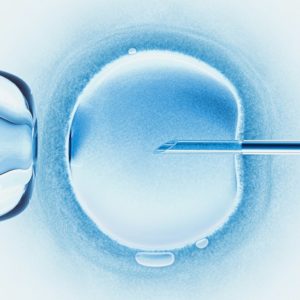Disclaimer :: Fort Worth Fertility sponsored this post and simplified the ins and outs of in-vitro fertilization and other fertility treatments available for hopeful parents struggling to conceive.
“It may be time to think about IVF.”
Not exactly the most comforting words or even the words you want to hear when trying to conceive. Dollar signs, a million and one questions, and maybe even the picture a friend-of-a-friend posted on Facebook showing all the needles and medication bottles in a heart around a sonogram picture start flooding your mind. But something else is there too: hope. In-vitro fertilization (IVF) sounds daunting at first, the staff at Fort Worth Fertility knows, but it also helps about a quarter of patients achieve the families of their dreams.
What Is IVF, and Who Is a Good Candidate?
IVF is the process of creating embryos by retrieving eggs, fertilizing them, and growing the embryos to either implant or freeze for future use. Patients with low ovarian reserve (low number of eggs), low sperm count, blocked or tied tubes, or unexplained infertility are all good candidates for IVF. Additionally, patients who wish to eradicate a specific genetic disease from their families or have recurrent pregnancy loss are also excellent candidates for IVF with genetic testing. If you have ever considered freezing your eggs for future use, IVF (minus creating embryos) is for you, too.
How Does IVF Differ from What the Body Would Normally Do?
Each month, the female body produces a follicle which will mature and release an egg into the fallopian tube. For patients who are trying to conceive, ovulation is the peak time for intercourse and hopefully successful fertilization resulting in a pregnancy.
IVF aims to increase the maturation of more follicles to produce eggs for retrieval. A variety of factors impact the number of eggs successfully retrieved. The anti-mullerian hormone (AMH) level and a sonogram will confirm a patient’s egg potential as well as help the doctor select the correct dosage of medication to maximize the number of eggs retrieved.
The retrieved eggs are then fertilized by injecting sperm directly into the oocyte. About 75 percent of the eggs will successfully fertilize and continue to grow. Of those, about 30 percent will continue to grow to the stage necessary for implanting or freezing. These are general statistics, and individual outcomes may vary.
Patients may elect to have genetic testing done on their embryos if they wish. Pre-implantation genetic screening (PGS) allows the embryo laboratory to determine if the embryos are chromosomally normal. The test analyzes one cell from the embryo and screens for over 2,500 abnormalities. Because the testing analyzes the chromosomes, the gender of the embryo is also known. Genetic testing may add additional time to the completed IVF treatment.
How Long Does Treatment Last?
IVF lasts six weeks from start to finish. Treatment starts the first day of a patient’s menstrual cycle following her consultation. At that time, patients will come in for what is called a baseline sonogram. From there, the necessary diagnostic testing will be completed before medication begins. Patients will take anywhere from 10 to 14 days of medication, depending on how well their ovaries respond. When the follicles are ready, the egg retrieval will be scheduled, followed by an embryo transfer five to six days later. Blood tests are performed nine days post transfer to confirm pregnancy.
 Fort Worth Fertility has been a member of the Fort Worth community for more than 10 years. They have performed thousands of IVF cases, both with and without genetic testing. Dr. Robert A. Kaufmann, a board-certified reproductive endocrinologist, leads a team of dedicated nurses, embryologists, and support staff to create a personally tailored plan for success. Dr. Kaufmann has more than 30 years of experience in all types of fertility treatments including surgery, timed intercourse, IUI, and IVF. His dedication to patient success has earned him awards from fellow physicians (Top Doctor in Fort Worth Magazine) and patients (Most Compassionate Doctor) since moving to Fort Worth in 2005.
Fort Worth Fertility has been a member of the Fort Worth community for more than 10 years. They have performed thousands of IVF cases, both with and without genetic testing. Dr. Robert A. Kaufmann, a board-certified reproductive endocrinologist, leads a team of dedicated nurses, embryologists, and support staff to create a personally tailored plan for success. Dr. Kaufmann has more than 30 years of experience in all types of fertility treatments including surgery, timed intercourse, IUI, and IVF. His dedication to patient success has earned him awards from fellow physicians (Top Doctor in Fort Worth Magazine) and patients (Most Compassionate Doctor) since moving to Fort Worth in 2005.
If you have more questions about IVF and fertility treatments, or if you would like to schedule a consultation, please feel free to visit their website at www.fwivf.com, call them at 817-348-8145, or email [email protected]!














